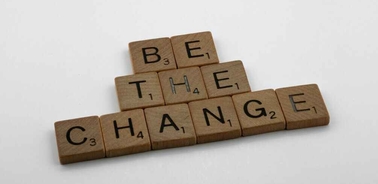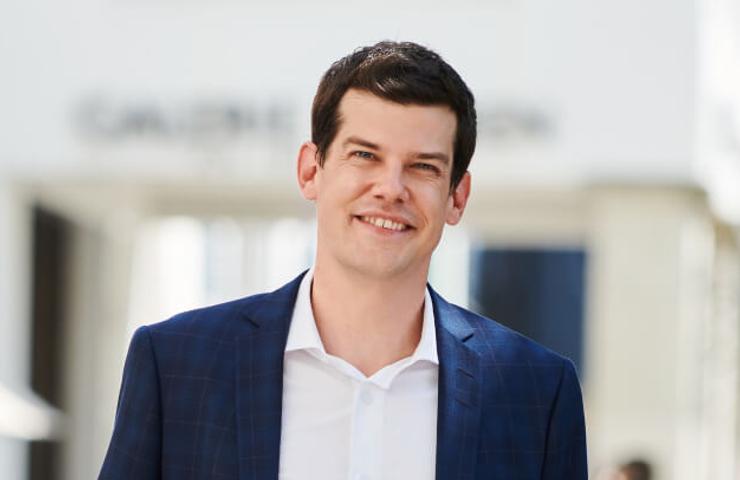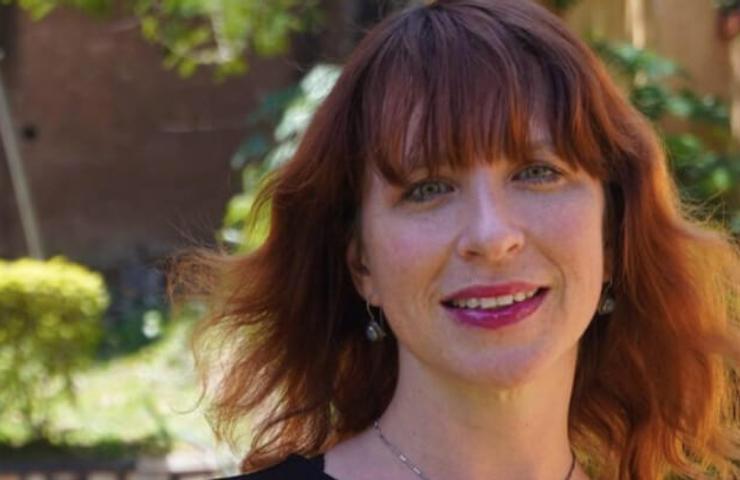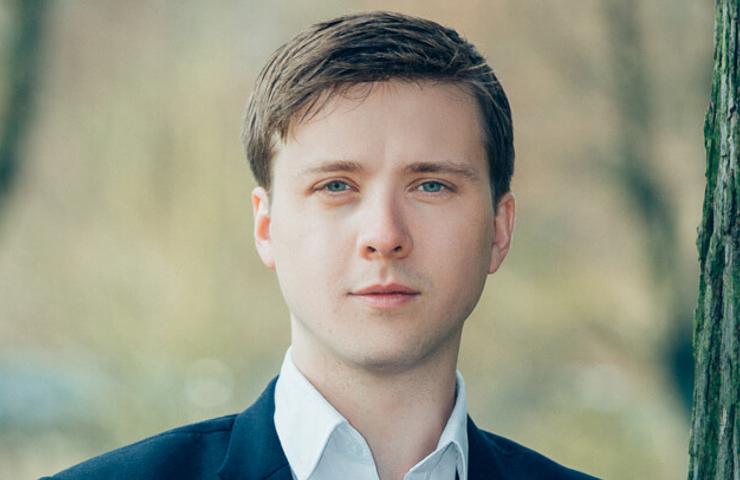- Home
- News And Events
- What’s Going On
- Redefining Success
Redefining Success

Alumni Invest Themselves in Changing the World.
Sustainability. Gender equality. Fighting poverty. Beyond the buzz words are deep concerns that demand attention. While businesses are increasingly incorporating these issues into their strategic narrative (conversations and planning), some of IE Business School’s top alumni are walking away from traditional career paths to dedicate themselves to actually creating a better world. These alumni are breaking boundaries of pre-conceived ideas of the natural progression of a successful career path—and, at the same time, redefining success.
Florin Lanz, Yvonne Krywyj and Max von Hoyningen are three examples of IE alumni who switched professional paths because what deeply resonated for them was “making a difference.” Each left positions they had worked years to achieve because they yearned for jobs that filled them with a sense of purpose. For Florin, that meant investing himself in fighting poverty in the world’s poorest regions through social impact financing. Yvonne took the opportunity to move beyond previous roles to further women’s inclusion in the work environment. And Max felt the time had come for him to wed conservation efforts with good business practices.
Read Florin, Yvonne and Max’s interviews to see how they redefined the bottom line.
FLORIN LANZ
YVONNE KRYWYJ
MAXIMILIAN VON HOYNINGEN

Executive Director of elea Foundation For Ethics in Globalization
Thus he decided to join the elea Foundation for Ethics in Globalization, which fights absolute poverty with entrepreneurial means, capitalizing on the benefits and opportunities of globalization. Lanz is an Executive Director at the active philanthropic impact investor, which finances social companies in regions where people’s daily income is less than $3. Lanz’s organization focuses on projects that have already passed the startup phase to help the company establish a sustaining structure.
While elea aspires to be a role model organization with charisma in the field of entrepreneurial philanthropy, Lanz said the foundation and the purpose-driven work is deeply rewarding in its own right. He encourages anyone considering the idea of switching from a traditional career path to purpose-drive work to take the plunge: “If you are passionate about it, do not think too much, just do it!”
WHAT IS YOUR BACKGROUND? WHAT WAS YOUR CAREER FOCUS BEFORE ELEA?
WHAT DOES ELEA DO EXACTLY?
Across Africa, Asia, and Latin America, elea invests in entrepreneurial solutions that have a substantial and measurable social impact at the base of the pyramid by creating opportunities to improve livelihoods in regions of the world where average daily incomes are USD 3 per capita or less. Investments focus on four topical areas: digital solutions, employable skill building, global agricultural value chains, and informal retail and last-mile distribution.
WHAT MADE YOU DECIDE TO CHANGE GEARS AND LAUNCH INTO THIS NEW STAGE?
WHAT IS YOUR ROLE? WHAT DO YOU DO? AND WHY IS IT MEANINGFUL FOR YOU?
WHAT WAS THE MOST CHALLENGING PART OF MAKING THIS CAREER CHANGE?
WHAT MADE YOU DECIDE THE TIMING WAS RIGHT TO MAKE THIS CHANGE?
WHAT DO YOU SEE AS YOUR NEXT STEP?
As a more immediate next step, I am looking forward to spending time in our target markets to extend our relationships on the ground.
WHAT WOULD YOU TELL SOMEONE DECIDING WHETHER TO SWITCH OUT OF A TRADITIONAL CAREER PATH?

Gender and Business Expert
Value for Women Ltd.
Prior to undertaking the International MBA in 2012—where she graduated in the top 25 percent of the class—Yvonne Krywyj worked nearly a decade as an attorney in the public sector. After her graduation, she pivoted to managing business operations, developing and improving processes and financial controls for companies and NGOs with a social impact. But four months ago, Krywyj decided to go a step further.
While women’s issues had always been a motif throughout her work, the lifelong feminist threw herself completely into a new role as Gender and Business Expert at Value for Women, a specialized advisory firm that applies a gender lens to a diverse set of organizations, investors, and small and growing businesses and takes a business-first approach to gender inclusion. She moved to Value for Women both to apply gender inclusion to her work on a full-time basis and to go beyond managing niche businesses and NGOs to advise companies in a variety of sectors and regions.
After living in sub-Saharan Africa for more than seven years, the U.S. citizen isn’t sure where this new role will lead her. However, she is clear that social impact, women’s inclusion and business feed her sense of purpose and encourages others to think outside the box for their career: “For someone who is very set on switching out of a traditional career path, I’d recommend they just go for it. There are so many skills in the private sector that are transferable to the social enterprise and nonprofit worlds.”
WHAT IS YOUR BACKGROUND? WHAT WAS YOUR CAREER FOCUS WHEN YOU WORKED AS AN ATTORNEY AND WITH UPENERGY?
I’m on my second, or maybe now my third, career. Before pursuing my MBA at IE, I worked as an attorney with the US government, regulating interstate commerce. I was never quite fulfilled as a lawyer and wanted to do something where I would make a difference and travel or live overseas, which is why I went to IE. After IE, I spent seven years managing social enterprises that sold products to base-of-pyramid customers.
WHAT MADE YOU DECIDE TO CHANGE GEARS AND LAUNCH INTO THIS NEW STAGE FULLY FOCUSED ON WOMEN?
In many ways, women’s inclusion has been a through line in my post-MBA career. Both SHE and UpEnergy sold products (sanitary pads and efficient cookstoves) primarily used by women. At SHE, we had a majority-women work force and women in our value chain, and I worked to increase the number of women on our team and in our value chain at UpEnergy as well. So, the move to Value for Women feels like more of a natural next step than it may look from the outside.
WHAT IS YOUR ROLE? WHAT DO YOU DO? WHY IS IT MEANINGFUL FOR YOU?
My official title is Gender and Business Expert; I advise SGBs and impact investors on gender inclusion and applying a gender lens to their business practices. This includes not only women-owned businesses and women in the work force but also products and services that benefit women and women’s inclusion in value chains. At Value for Women, we take a business-first approach to gender inclusion. There’s a strong business case for applying a gender lens – for example, a Crédit Suisse study found that companies with at least one woman on their Board of Directors had better share price performance than those with none – and we make that business case to our clients. As a lifelong feminist, I’m thrilled to be doing work where I can live my values and advance a cause that’s important to me.
WHAT IS IT THAT MEANS THE MOST TO YOU WITH RESPECT TO WOMEN’S INCLUSION AND HOW DOES VALUE FOR WOMEN MEET THAT NEED?
It’s hard to nail down one specific thing about women’s inclusion that means more to me than others. There are still many issues in the workplace, from sexual harassment to the lack of paid maternity leave to VCs asking women entrepreneurs when they plan to have children and don’t ask men entrepreneurs the same question. There are also cultural and social issues, from rape culture and victim blaming to women presidential candidates in the USA never being “likable” enough to get elected– which isn’t a consideration for male candidates. There are design issues – women suffer more often, and more serious injuries in car accidents, because safety testing is done with male crash test dummies, for one. Unfortunately, the patriarchy is still alive and well. I’m happy to have an opportunity, at Value for Women, to do my part to chip away at it.
WHAT WAS THE MOST CHALLENGING PART OF MAKING THIS CAREER CHANGE?
Going from managing businesses to advising businesses has been a steep learning curve! There’s a lot of technical knowledge I didn’t have going in and am still getting up to speed. Fortunately, we have a very collaborative team. Everyone is willing to share their knowledge and learnings.
WHAT DO YOU SEE AS YOUR NEXT STEP?
Professionally, I’ve just started at Value for Women and am still finding my footing there, so it’s a bit early to think about next steps, though I do see it as an organization where I have room to grow and advance. To be honest, every step I’ve taken in my career has informed the next step, but I haven’t followed one singular path plotted out from the start. My life isn’t that linear. Personally, I’ve been living in sub-Saharan Africa for seven years, and am thinking it might be time for a change of scene in the next few months. I’m not ready to move back home to the USA yet, but I would like to see what parts of the world are opening up as more of the population gets covid vaccines, and where I can get a remote work visa, as I can do my job from anywhere in the world.
WHAT WOULD YOU TELL SOMEONE DECIDING WHETHER TO SWITCH OUT OF A TRADITIONAL CAREER PATH?
For someone who is very set on switching out of a traditional career path, I’d recommend they just go for it. There are so many skills in the private sector that are transferable to the social enterprise and nonprofit worlds. For someone on the fence, I’d suggest they find a short- or medium-term opportunity to try working in social impact and see how they like it before taking the plunge. Yunus Social Business (where I did a pro bono consultancy right after my IMBA), Emzingo, Kiva, Grameen Foundation, and MovingWorlds all offer such opportunities.

World Wildlife Fund
Fresh out of the International MBA in 2016, Max von Hoyningen started consulting at a London-based company. He enjoyed helping a British private equity fund cut costs and reorganize its assets. From there, he moved back to Germany to head business development for innovative Haspa Next’s digital products and then to oversee corporate development for Linc Institute for Corporate Learning.
But after years of investing himself to help companies improve, von Hoyningen felt the time had come for him to apply his expertise to affect the world around him. He consciously sought a project that would weave together his business background with his desire for meaningful work in conservation.
That’s how he decided to take a position at the World Wildlife Fund in March 2020. While he admits the transition was more challenging than he expected and that luck and circumstance aided his move, he said it was unquestionably the right decision: “Untraditional career paths are guaranteed to be more interesting, be more aligned with what you believe in and care about, and ultimately allow for more self-actualization.”
WHAT IS YOUR BACKGROUND? WHAT WAS YOUR CAREER FOCUS WHEN YOU WERE INVOLVED IN CONSULTING?
Since my background is in business psychology, my consulting projects mostly focused on organizational development. At KPMG, I re-engineered processes for ICT companies and financial services providers. Right before coming to IE, I offered asset-based consulting, text analytics algorithms to automate data analysis and facilitate consulting. After the MBA, I reorganized one of its assets and cut costs for a British private equity fund as an independent consultant.
WHAT MADE YOU DECIDE TO CHANGE GEARS AND LAUNCH INTO THIS NEW STAGE AT THE WORLD WILDLIFE FUND?
In my previous positions, I often struggled to be emotionally invested in the job. While consulting is fun, intellectually challenging and a great way to meet a lot of very smart people, I felt like a mercenary working for the success of my clients – usually not for anything on a global scale. I think, however, that the methodologies of consulting are extremely powerful, that’s why I looked for an industry that I genuinely care about to apply what I’ve learned, which made sustainability the obvious choice. Since WWF is the only global, full-fledged conservation organization which is open to work with business, it’s the one I chose.
WHAT IS YOUR ROLE? WHAT DO YOU DO? WHY IS IT MEANINGFUL FOR YOU?
At WWF Germany, I am Head of Corporate Partnerships. In this role, I am ultimately responsible for evaluating, negotiating and closing all the partnerships for the German branch. Daily business for us is assessing the ecological impacts of various industries as well as companies and then deriving ecological business transformation measures and opportunities for them to align their economic realities with ecological targets. Since we are business partners, not service providers, and own the most respected brand in conservation, I feel we have a huge influence on the ecological performance of the companies we work with. Since business as a force for conservation fascinates me, it makes the job very meaningful to me.
WHAT WAS THE MOST CHALLENGING PART OF MAKING THIS CAREER CHANGE?
Finding an institution with a mission I believe in. There are many fundamentalist conservation organizations which are profoundly anti-business. And there are many businesses who run greenwashing marketing campaigns to conceal their profoundly anti-conservation operations. True conservation, which is open to work alongside business to solve the biggest challenges of our time, is rare. Also, since my private network is mostly in consulting, finance and entrepreneurship, it was challenging to get first-hand insights.
WHAT DO YOU SEE AS YOUR NEXT STEP?
Since I started my position very recently– and I have set many targets for myself– I will be very busy in the near future. While the topic of sustainability has received some attention over the past few years, how to align business with sustainability is still mostly uncharted territory. So, I won’t get bored or run out of projects in my current position any time soon.
WHAT WOULD YOU TELL SOMEONE DECIDING WHETHER TO SWITCH OUT OF A TRADITIONAL CAREER PATH?
Do it– as long as you are comfortable with uncertainty and the risks associated. Also, talk to many people who chose untraditional career paths as well about their experiences and what they would do differently. From what I experienced, it turned out to be more challenging than expected and I have to admit in some cases I was lucky to be at the right place at the right time. However, untraditional career paths are guaranteed to be more interesting, be more aligned with what you believe in and care about, and ultimately allow for more self-actualization.